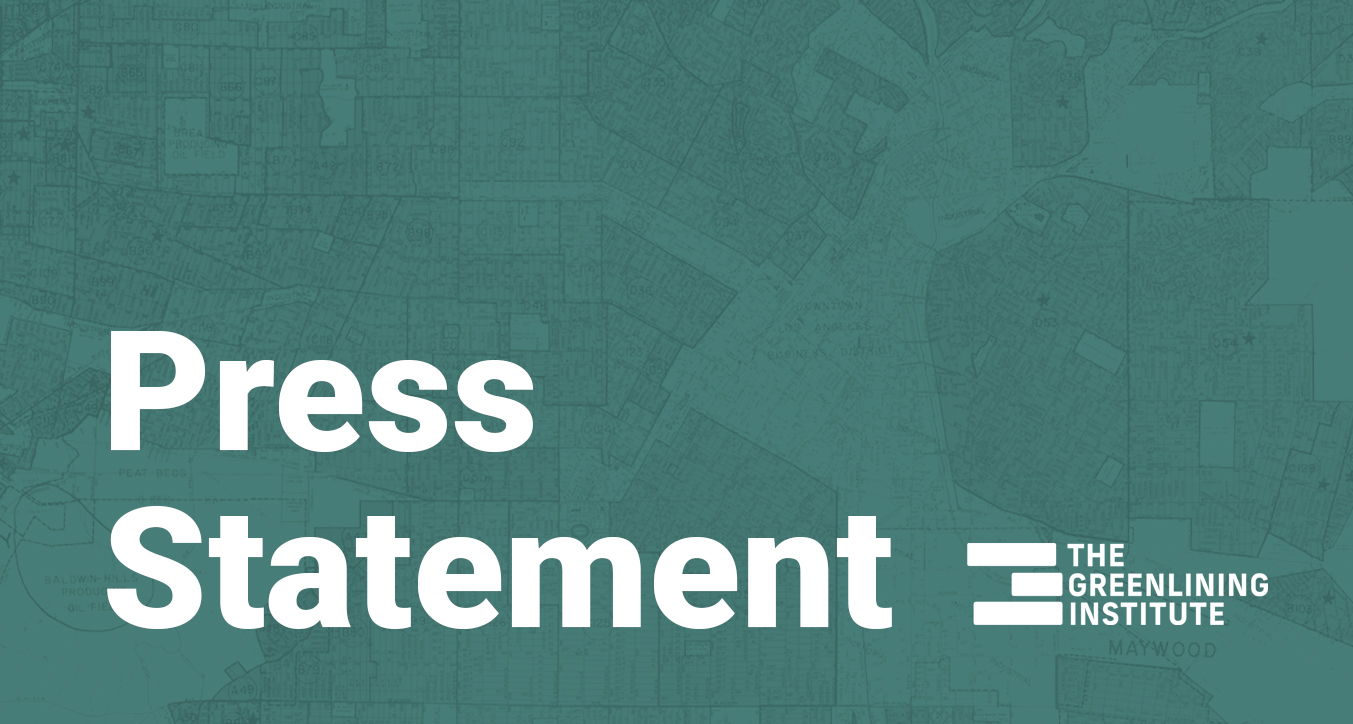New Justice Amy Coney Barrett poses a real threat to our rights

Media Contact
Danielle Bell
SENIOR PROGRAM MANAGER FOR MEDIA RELATIONS
media@greenlining.org danielle.bell@greenlining.org
By Debra Gore-Mann
San Francisco Chronicle
Whatever one thinks of the partisan aspects of Amy Coney Barrett’s confirmation, she represents a serious threat to civil rights protections, and indeed to the very health of every American.
Recently, Senate Majority Leader Mitch McConnell, R-Ky., claimed a monumental win for Republicans by stating in a speech on the Senate floor, “A lot of what we’ve done over the last four years will be undone sooner or later by the next election, but Democrats won’t be able to do much about this for a long time to come.” The Senate then voted 52-48 to confirm Barrett barely eight days before the general election.
The anger and the distrust over Barrett’s confirmation continues to swell in an already divided America — divided because this was the wrong priority. The priority should have been COVID-19. The forewarned October surge has materialized as the pandemic continues to heat up at a rate that alarms most experts, with new cases setting records and hospitalizations surging.
There was no urgency to name and confirm a nominee. In the not-so-distant past, a Supreme Court vacancy was held open for 422 days when Justice Antonin Scalia died on Feb. 13, 2016 and Neil Gorsuch was sworn in on April 10, 2017. That’s nearly 14 months.
There are serious concerns that Barrett is being pushed through because supporters know that she will advance their agenda, despite the wishes of the American people. The 45th president has been involved in over 4,000 legal battles in some capacity throughout his professional history as real estate mogul, entertainer, entrepreneur and now as a politician. We should not expect anything to change now. At least 126 multistate lawsuits (suits brought by one state and then joined by others) have been filed against the federal government since Trump took office in January 2017. And litigation about voting rights and voter suppression looms.
But amid all the partisan and procedural arguments we need to remember this: Barrett constitutes a clear and present danger to communities of color.
As an “originalist” in the mode of Clarence Thomas, Barrett seems inclined to take us back to an 18th century view of the world — an era that did not look favorably on the rights of people of color or women. In general, her record and writings suggest a narrow, constricted view of the government’s role in protecting those with the least power in society — including people of color, women, workers, immigrants, LGBTQ folks, etc.
Specifically, Barrett’s record suggests she takes a narrow, limited view of civil rights protections. In a case involving racial segregation by employer AutoZone, she joined a narrow majority ruling that “intentionally assigning members of different races to different stores” did not violate Title VII of the Civil Rights Act. As a dissenting judge noted, “Under the panel’s reasoning, this separate-but-equal arrangement is permissible under Title VII so long as the ‘separate’ facilities really are ‘equal.’
”This in itself is troubling. It’s worse when you combine it with Barrett’s apparently greater willingness to overturn precedent than has been traditional for the court, writing, “I tend to agree with those who say that a justice’s duty is to the Constitution and that it is thus more legitimate for her to enforce her best understanding of the Constitution rather than a precedent she thinks clearly in conflict with it.”
Combining the two views laid out above, what civil rights precedents will be safe in Barrett’s hands? This may seem unthinkable, but it’s not beyond imagination to worry whether even the essential ruling against “separate but equal,” Brown vs. Board of Education, might be in danger. Even if a majority of justices find Brown untouchable, which they should, what about more recent rulings affirming the existence of affirmative action programs at colleges and universities, or the rights of same-sex couples to marry?
In one critical real-world example, Barrett has shown hostility to the Affordable Care Act and has strongly criticized a prior Supreme Court ruling upholding it. As important as the ACA is to all Americans during a pandemic, it produced particularly dramatic gains in health coverage for Black, Latino, Asian and Indigenous Americans. This is not academic: SCOTUS will hear such a case shortly after the election.
Barrett could be the vote that takes away health care from millions during a global pandemic which just surpassed over 225,000 deaths in the U.S.
Debra Gore-Mann is president and CEO of The Greenlining Institute.




